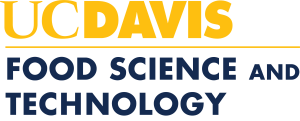(3 units) WINTER QUARTER
Instructor
COURSE GOALS: The goals of FST 104 are, firstly, to provide an integrated picture of the field of Food Microbiology which encompasses issues of food safety, food preservation, and food production, and secondly, to introduce students to the problems that a food microbiologist learns to address.
COURSE FORMAT: FST 104 is a lecture class with three 1-hour lectures per week.
PREREQUISITES: BIS 2A; BIS 102 and 103; MIC 102; MIC 103L
GRADING: Grades will be based on two midterms (25% each), a final (50%).
TOPICAL OUTLINE:
- Food-borne disease: the microbe, the disease, and prospects for control
- Introduction and generalizations
- Food-borne disease agents among the major microbial groups
- Bacteria
- Viruses
- Fungi
- Protozoa and worms
- Some legal considerations in food safety
- Control of microbial agents of food spoilage
- Parameters affecting microbial growth in food
- Temperature effects on growth
- Thermal destruction of bacteria in foods
- Effect of atmosphere on growth and survival
- Water activity
- Acids, other chemicals, and other food treatments
- Food spoilage patterns associated with the major microbial spoilage groups and the various categories of foods
- Detection and enumeration of bacteria in foods
- Traditional methods
- Newer methods based on traditional approaches
- New developments in bacterial detection, including immunological methods and the use of molecular genetics
- Microbes in food production
- Microbial-based food production
- Food fermentations
- The lactic fermentation
- Mixed food fermentations
- Microbes as food
- Microbes as sources of food enzymes and food ingredients
- New developments in the design of microbes for the food industry
